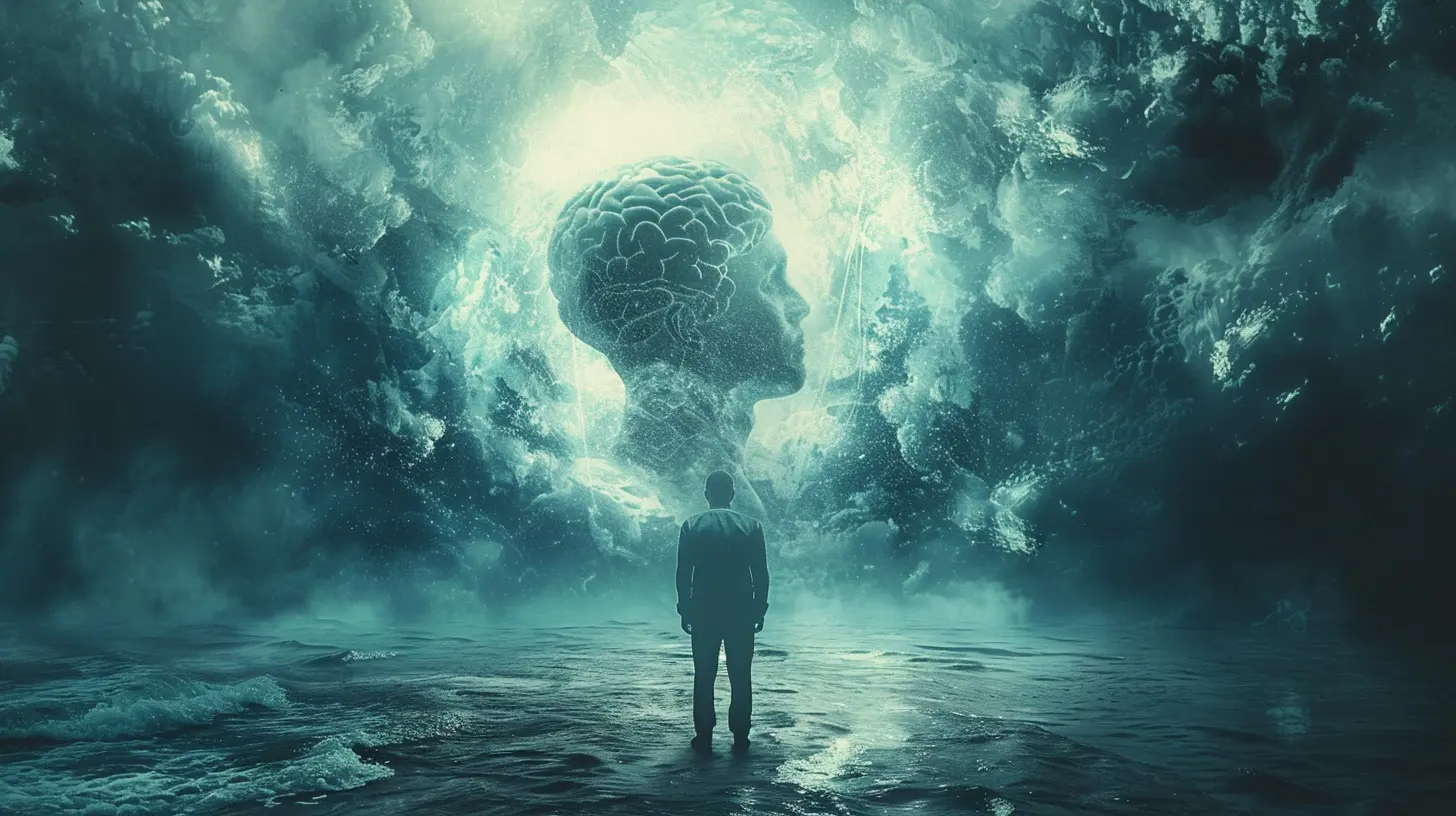The Unconscious Mind in Psychoanalysis: What Lies Beneath Awareness
27 May 2025
Have you ever caught yourself reacting to something in a way that doesn’t quite make sense? Maybe a certain smell triggers a long-forgotten memory, or a random dream leaves you wondering, Where did that even come from? That’s the unconscious mind at work—silently shaping your thoughts, emotions, and behaviors without you even realizing it.
Psychoanalysis, a field pioneered by Sigmund Freud, dives deep into this hidden part of the psyche. It suggests that beneath our conscious awareness lies a vast, unseen world influencing who we are and why we act the way we do. But what exactly is the unconscious mind? And how does it impact our day-to-day life? Let’s unravel this mystery together. 
Understanding the Unconscious Mind
Think of your mind as an iceberg. The tip, which represents your conscious thoughts, is just a tiny fraction of the whole. Beneath the surface lies the much larger unconscious mind—holding repressed memories, desires, fears, and instincts that silently shape your actions.Freud's psychoanalytic theory divides the mind into three parts:
- The Conscious Mind – Everything you're aware of right now, like the thoughts you're actively thinking.
- The Preconscious Mind – Information you're not currently thinking about but can recall when needed, like your phone number or a childhood memory.
- The Unconscious Mind – The hidden powerhouse, filled with emotions, fears, and past experiences that influence you without you even knowing.
You may not be aware of what’s sitting in your unconscious, but trust me, it's working behind the scenes—guiding your fears, shaping your habits, and even affecting your dreams. 
How the Unconscious Mind Influences Behavior
Have you ever stumbled upon an old song from your childhood and suddenly felt a deep rush of nostalgia? Or found yourself instantly disliking someone without knowing why? That’s your unconscious mind signaling to you, drawing from past experiences and emotions.1. Defense Mechanisms: Protecting the Mind
Freud believed that the unconscious mind is home to defense mechanisms—psychological strategies we use to protect ourselves from painful emotions. These include:- Repression – Pushing distressing memories out of awareness.
- Projection – Attributing your own feelings to someone else (ever met someone who's always accusing others of things they are guilty of?).
- Denial – Refusing to accept reality (like convincing yourself you're “fine” when you're clearly not).
These mechanisms work like an emotional shield, keeping anxiety at bay. But if they're overused, they can cloud self-awareness and lead to unhealthy behavioral patterns.
2. Dreams: The Gateway to the Unconscious
Freud called dreams the "royal road to the unconscious." He believed they reveal hidden desires, fears, and emotions we don’t acknowledge when awake. Ever had a bizarre dream and wondered what it meant? According to psychoanalysis, it’s your unconscious mind trying to communicate with you—though often in a cryptic, symbolic way.3. Childhood Experiences: Shaping Who We Are
Freud suggested that much of what resides in the unconscious mind stems from childhood. Early experiences, even those you don’t consciously remember, can affect your relationships, fears, and emotional responses as an adult. Ever wondered why certain situations make you feel uneasy for no apparent reason? It could be your unconscious recalling an old, unresolved issue.
Uncovering the Unconscious: Psychoanalytic Techniques
So, if the unconscious mind is so influential, how do we uncover what's hidden beneath the surface? Psychoanalysts use several techniques to help people access and understand their unconscious thoughts and emotions.1. Free Association: Let the Thoughts Flow
In this classic psychoanalytic technique, a person speaks freely about whatever comes to mind without filtering or censoring their thoughts. The idea is that unconscious thoughts will eventually surface in unexpected ways, revealing deeper emotions and conflicts.2. Dream Analysis: Decoding the Hidden Messages
Have you ever wondered if your dreams have a deeper meaning? According to Freud, they do. Dream analysis examines the symbols and themes in dreams to uncover unconscious desires and fears. Ever dreamt about falling, being chased, or losing something important? These might all be messages from your unconscious seeking attention.3. Hypnosis: Accessing the Deepest Layers of the Mind
Some psychoanalysts use hypnosis to bypass the conscious mind and connect with the unconscious. While controversial, hypnosis has been used to uncover repressed memories and address deep-seated emotional conflicts.4. Slips of the Tongue: The Unconscious Speaking Out
Ever accidentally call your teacher "Mom"? Freud believed that these so-called Freudian slips reveal hidden thoughts and desires escaping from the unconscious. While they might seem like simple mistakes, they can provide insight into what's really on your mind.
The Unconscious Mind and Personal Growth
Understanding your unconscious mind isn’t just a fascinating psychological concept—it can actually help you grow as a person. When you become aware of your hidden thoughts and emotions, you gain greater control over your actions and reactions.1. Breaking Negative Patterns
Ever notice that you keep making the same mistakes in relationships, work, or life? Often, unconscious patterns drive these behaviors. By exploring your unconscious, you can identify and break these cycles, leading to healthier choices.2. Healing Emotional Wounds
Unresolved emotions don’t just disappear—they get stored in the unconscious until we confront them. Addressing these hidden wounds through therapy, journaling, or self-reflection can bring emotional healing and self-awareness.3. Boosting Creativity and Intuition
Some of the most creative ideas and intuitive insights stem from the unconscious mind. Ever had a great idea in the shower or solved a problem in your sleep? That’s your unconscious working in the background. Learning to tap into this hidden resource can enhance creativity and problem-solving skills.Tapping into the Power of the Unconscious
Now that we know how much influence the unconscious mind has, how can we work with it rather than against it? Here are a few ways to harness the power of your hidden mind:- Practice Mindfulness – Becoming more aware of your thoughts and emotions can help bring unconscious patterns to light.
- Keep a Dream Journal – Writing down your dreams can reveal subconscious thoughts and unresolved emotions.
- Try Meditation – Meditation allows you to quiet the conscious mind and explore deeper mental layers.
- Reflect Through Journaling – Writing about your thoughts and feelings can help access hidden emotions and patterns.
The unconscious mind is like a deep ocean—mysterious yet powerful. By understanding and embracing it, we can navigate life's challenges with greater awareness, emotional resilience, and inner peace.
Final Thoughts
Though invisible to the conscious mind, the unconscious plays a massive role in shaping who we are. From childhood experiences to hidden fears, it influences our behavior, dreams, and even our seemingly “random” thoughts.By becoming more aware of the unconscious, we gain insight into ourselves, allowing us to heal old wounds, break unhelpful habits, and lead a more intentional, fulfilling life. So next time you find yourself reacting a certain way without knowing why, pause for a moment—your unconscious mind might be trying to tell you something.
all images in this post were generated using AI tools
Category:
PsychoanalysisAuthor:

Jenna Richardson
Discussion
rate this article
3 comments
Lincoln McClellan
Fascinating insights! It’s amazing how much our unconscious drives our thoughts and behaviors daily!
June 17, 2025 at 4:19 AM

Jenna Richardson
Thank you! I’m glad you found it intriguing—our unconscious truly plays a crucial role in shaping our experiences!
Kestrel McMurtry
Fascinating exploration! How does our unconscious influence daily decisions, and can we truly access its hidden depths effectively?
May 30, 2025 at 2:56 PM

Jenna Richardson
Thank you for your interest! Our unconscious influences daily decisions through underlying beliefs and emotions that shape our perceptions and behaviors. While accessing these depths can be challenging, techniques like dream analysis and free association in psychoanalysis can help illuminate these hidden aspects of our minds.
Leona McTavish
This article beautifully highlights the intricate role of the unconscious mind in psychoanalysis. It’s fascinating to consider how much of our behavior is influenced by underlying thoughts and emotions we may not be aware of. Thank you for shedding light on this complex yet essential aspect of human psychology!
May 30, 2025 at 4:57 AM

Jenna Richardson
Thank you for your thoughtful comment! I'm glad you found the exploration of the unconscious mind engaging—it's indeed a crucial aspect of understanding human behavior.



